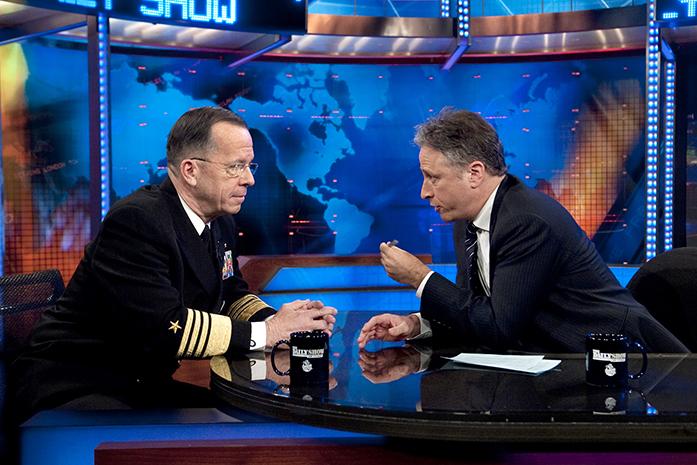Joe Lane
Joseph-lane@uiowa.edu
Last week, comedian Jon Stewart briefly returned to the show he starred in. Stewart’s return to “The Daily Show,” now hosted by Trevor Noah, was no joking matter, however. Despite airing on Comedy Central, the show often tackled serious issues during Stewart’s tenure. While it is yet to be determined how often Noah will address such serious scenarios, the episode that aired last week with Stewart proved that the show can still handle important political situations.
Stewart’s made his return to talk about the Zadroga Act, which, according to Congress.gov, “allows individuals to file claims for compensation under the September 11th Victim Compensation Fund of 2001 anytime after regulations are updated based on the James Zadroga 9/11 Health and Compensation Act of 2010.”
In essence, the Zadroga Act provided health care to 9/11 first responders who experienced medical problems as a result of their work. As Stewart explained on his appearance, the initial Zadroga act was signed five years ago and expired in September. His appearance was an effort to urge Congress — he specifically used House Speaker Paul Ryan, R-Wis., and Senate Majority Leader Mitch McConnell, R-Ky., as examples — to pass the reauthorization bill for the Zadroga Act, which would make the benefits provided by the act permanent for 9/11 first responders.
This week, several articles have noted that the general consensus in Washington, D.C., seems to be that the reauthorization act will pass after all. The passing of this act — whether it would have happened with or without Stewart’s urging — is a perfect example of what effective government can look like.
The original intention of the collective organizations to which we refer as “the media” was to inform the American public of the workings of the federal, state, and local government. But as trust in U.S. government reaches the lowest numbers since the early ’90s, according to Gallup, it has become increasingly important, and increasingly less common, for the media to act as a catalyst for citizen involvement in government.
Stewart’s actions last week led to a mass social-media outcry for Congress to vote in favor of reauthorization. And although it may be a 21st-century take, the media were largely responsible for the outcry, and the result is the likely passing of the act.
The United States operates as a representative democracy. The basic principle is that our government is run as a democracy: voting, majorities, freedom, etc. Rather than wasting the time and resources required to have every citizen vote, elected officials represent the mass opinions. How, though, can these elected officials represent the opinions of the masses without hearing the thoughts of those who elected them?
Stewart’s segment on “The Daily Show” concluded with a still-frame image of a panel he was conducting contrasted with the same panel he conducted years ago at the outset of the Zadroga Act. Only on this year’s panel, there was one empty chairs representing the one panel-member — a first responder — who had passed away. This type of powerful imagery is exactly what cannot be expressed in a press release by the offices of Congress.
And while many will argue that Stewart’s bias is not good journalism — and they certainly have a point — the truth is that his method was effective at moving government to do the right thing.
A previous version of this story said three former 9/11 responders/panelists were represented as empty chairs. In fact, only one has died. The DI regrets the error.



